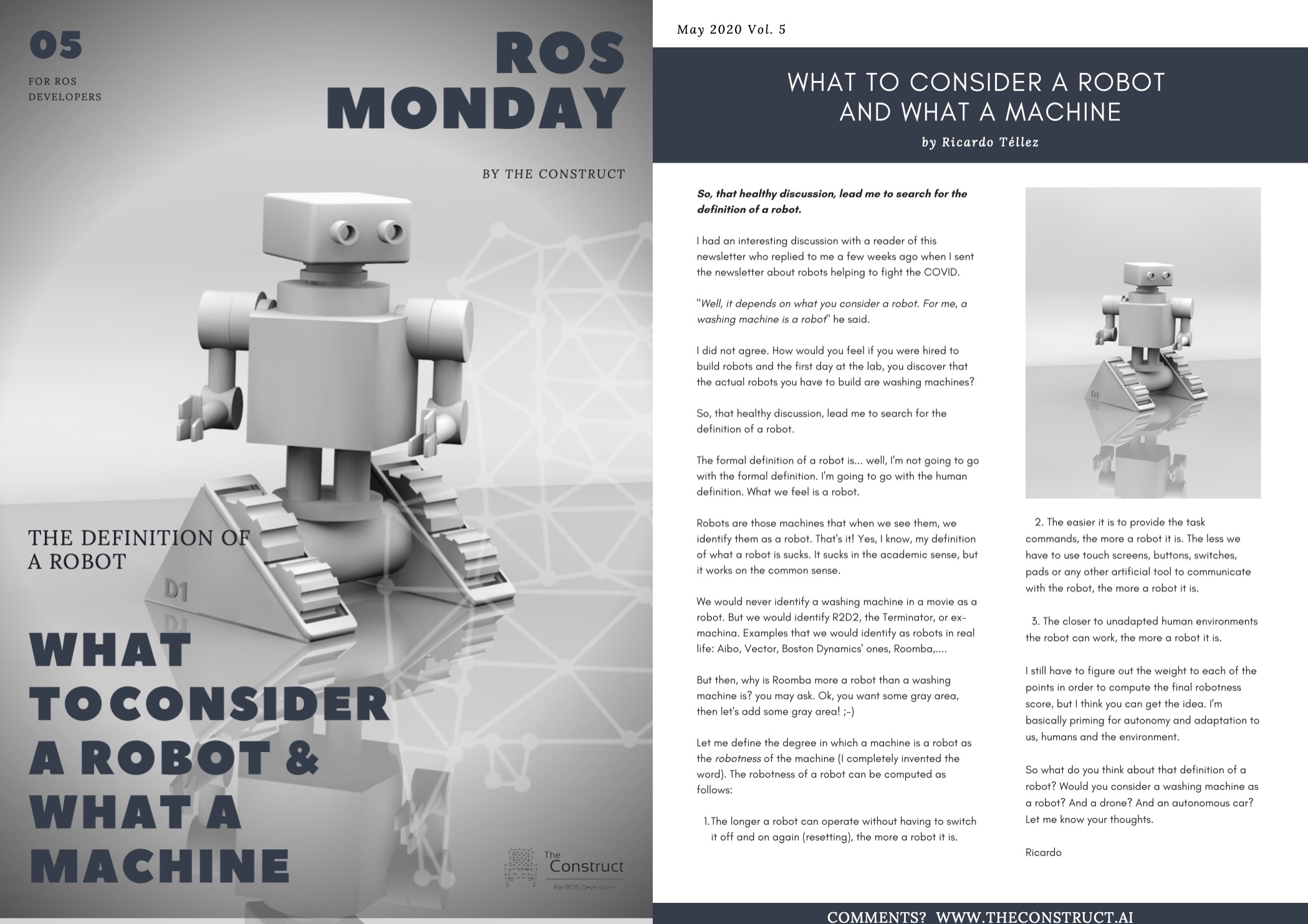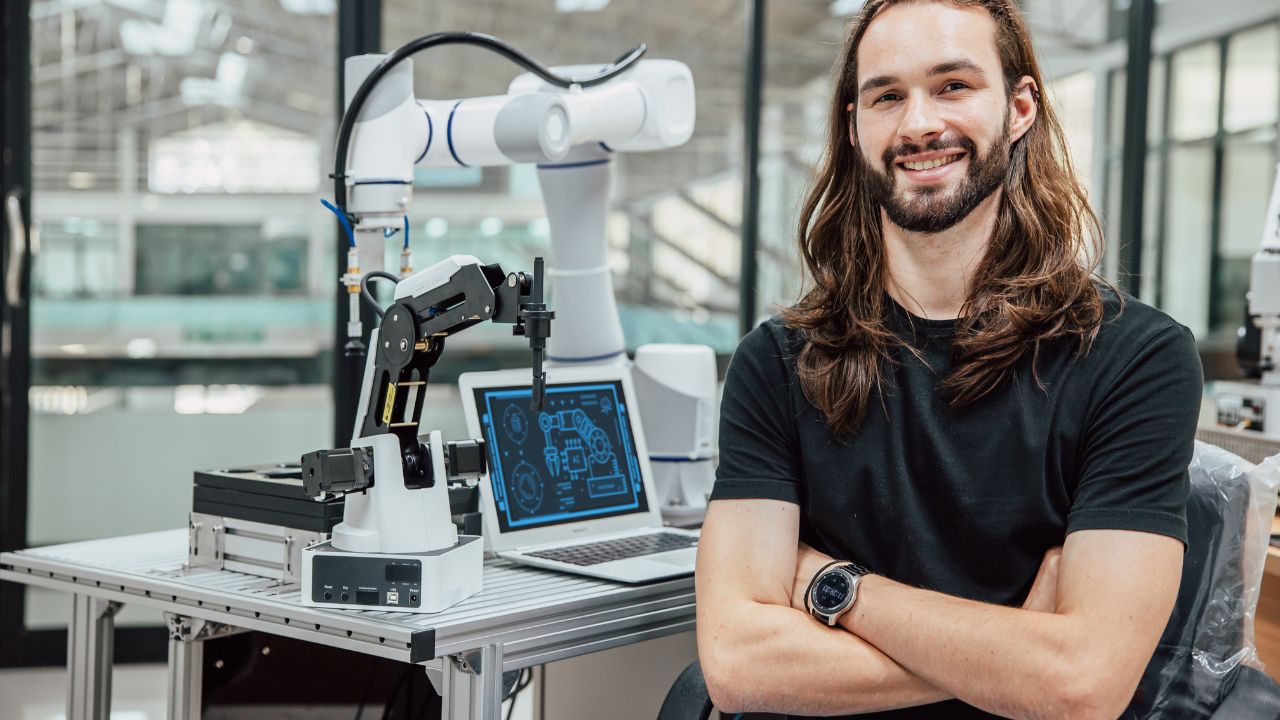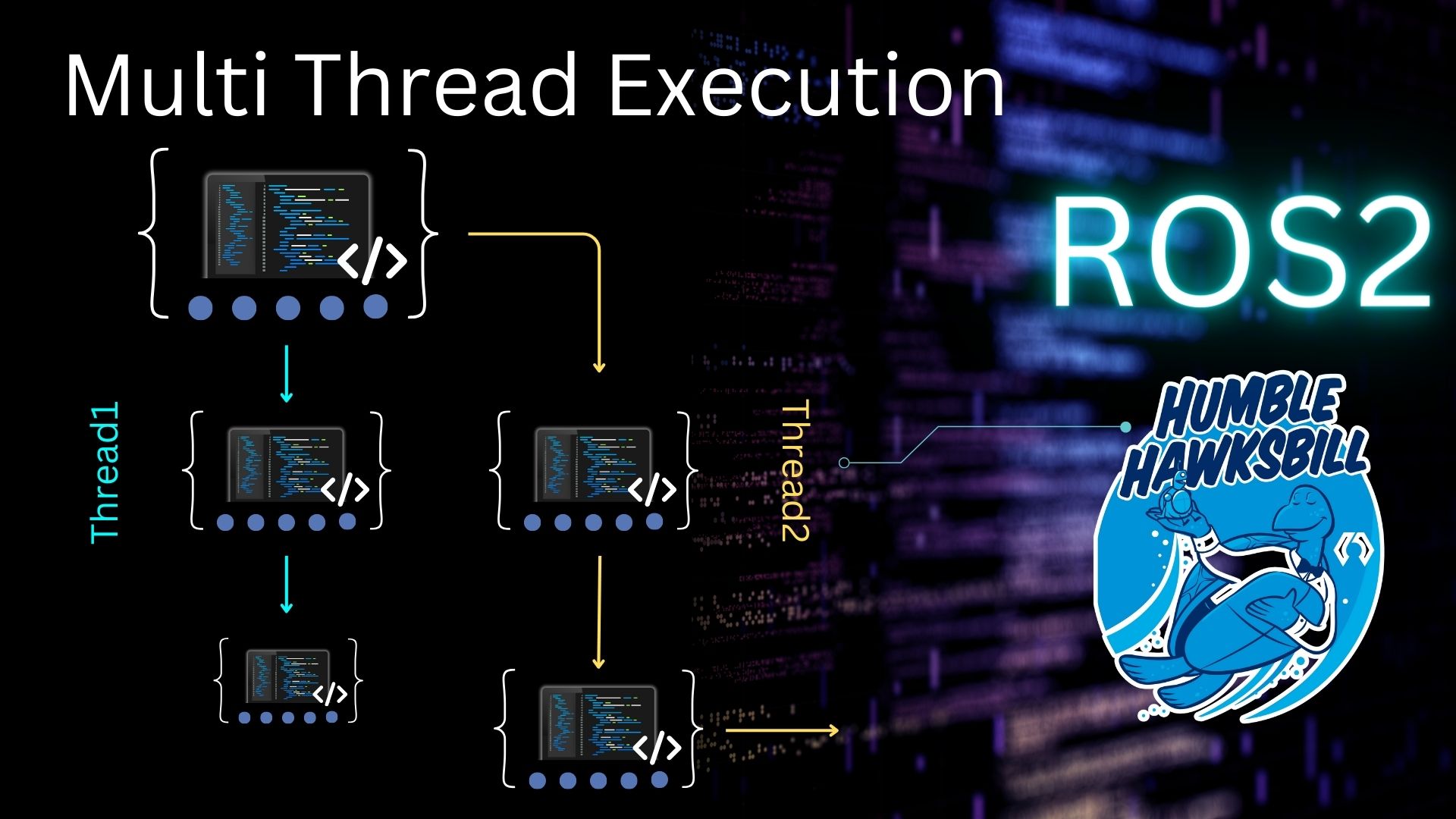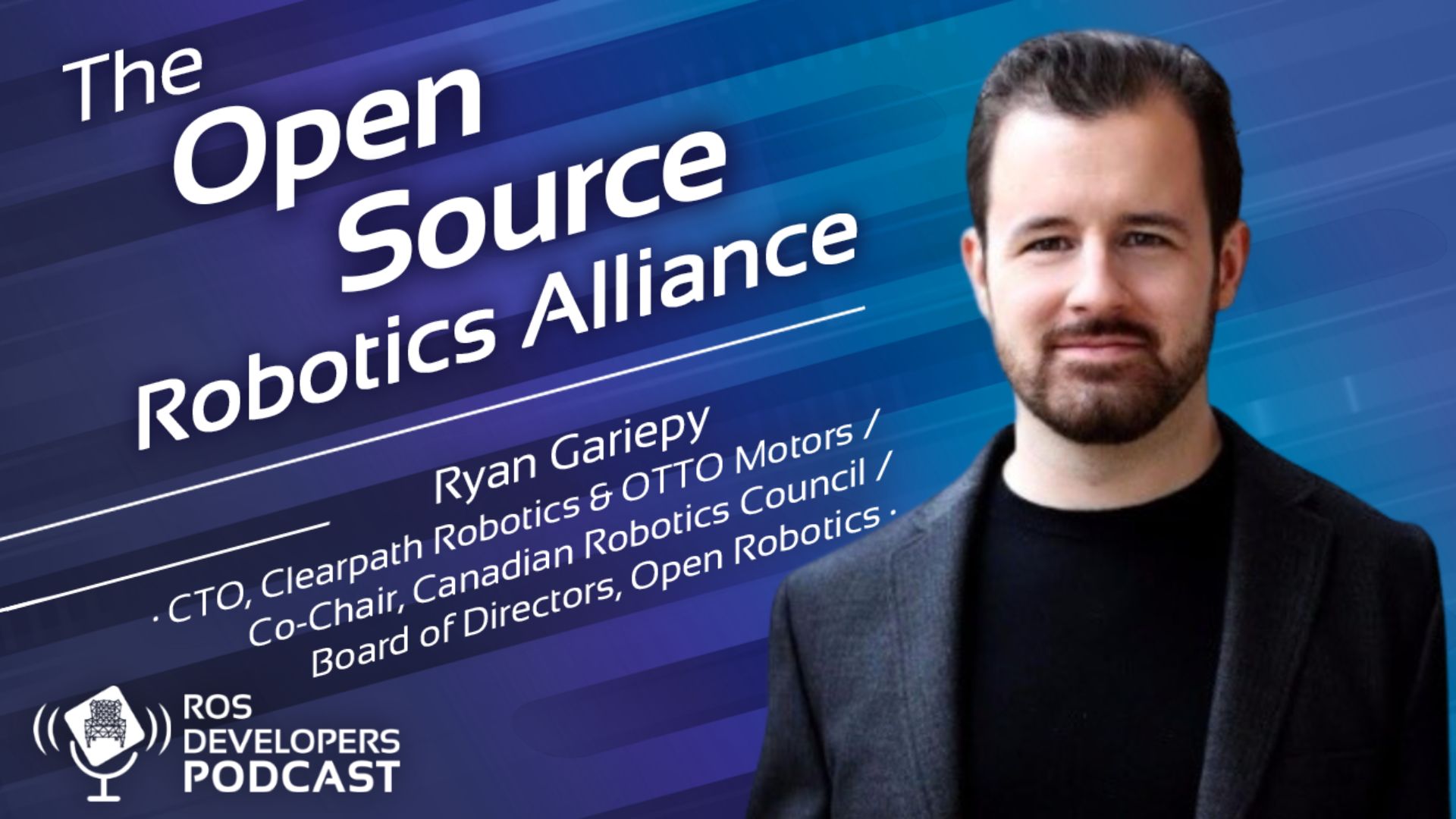I had an interesting discussion with a reader of this newsletter who replied to me a few weeks ago when I sent the newsletter about robots helping to fight the COVID.
“Well, it depends on what you consider a robot. For me, a washing machine is a robot” he said.
I did not agree. How would you feel if you were hired to build robots and the first day at the lab, you discover that the actual robots you have to build are washing machines?
So, that healthy discussion, lead me to search for the definition of a robot.
The formal definition of a robot is… well, I’m not going to go with the formal definition. I’m going to go with the human definition. What we feel is a robot.
Robots are those machines that when we see them, we identify them as a robot. That’s it! Yes, I know, my definition of what a robot is sucks. It sucks in the academic sense, but it works on the common sense.
We would never identify a washing machine in a movie as a robot. But we would identify R2D2, the Terminator, or ex-machina. Examples that we would identify as robots in real life: Aibo, Vector, Boston Dynamics’ ones, Roomba,…
But then, why is Roomba more a robot than a washing machine is? you may ask. Ok, you want some gray area, then let’s add some gray area! 😉
Let me define the degree in which a machine is a robot as the robotness of the machine (I completely invented the word). The robotness of a robot can be computed as follows:
- The longer a robot can operate without having to switch it off and on again (resetting), the more a robot it is.
- The easier it is to provide the task commands, the more a robot it is. The less we have to use touch screens, buttons, switches, pads or any other artificial tool to communicate with the robot, the more a robot it is.
- The closer to unadapted human environments the robot can work, the more a robot it is.
I still have to figure out the weight to each of the points in order to compute the final robotness score, but I think you can get the idea. I’m basically priming for autonomy and adaptation to us, humans and the environment.
So what do you think about that definition of a robot? Would you consider a washing machine as a robot? And a drone? And an autonomous car? Let me know your thoughts.
Ricardo






Ricardo – I think it might be helpful to think about this along at least three dimensions (perhaps others as well) – your ‘degree of robotness’ distinction might fit in here somewhere.
1) what is automation?
2) where can ROS be used?
3) what is a robot (robotness)?
Some sample observations (by no means complete but just some starting thoughts). A robot is a subtype of automation. A washing machine is also a subtype of automation. ROS could be used to run many types of automation machines; including a washing machine.
Thanks for your comment Allan. I love ROS but I think we should keep it out of the robotness discussion, since having or not having ROS inside does not define the robotness of a robot.